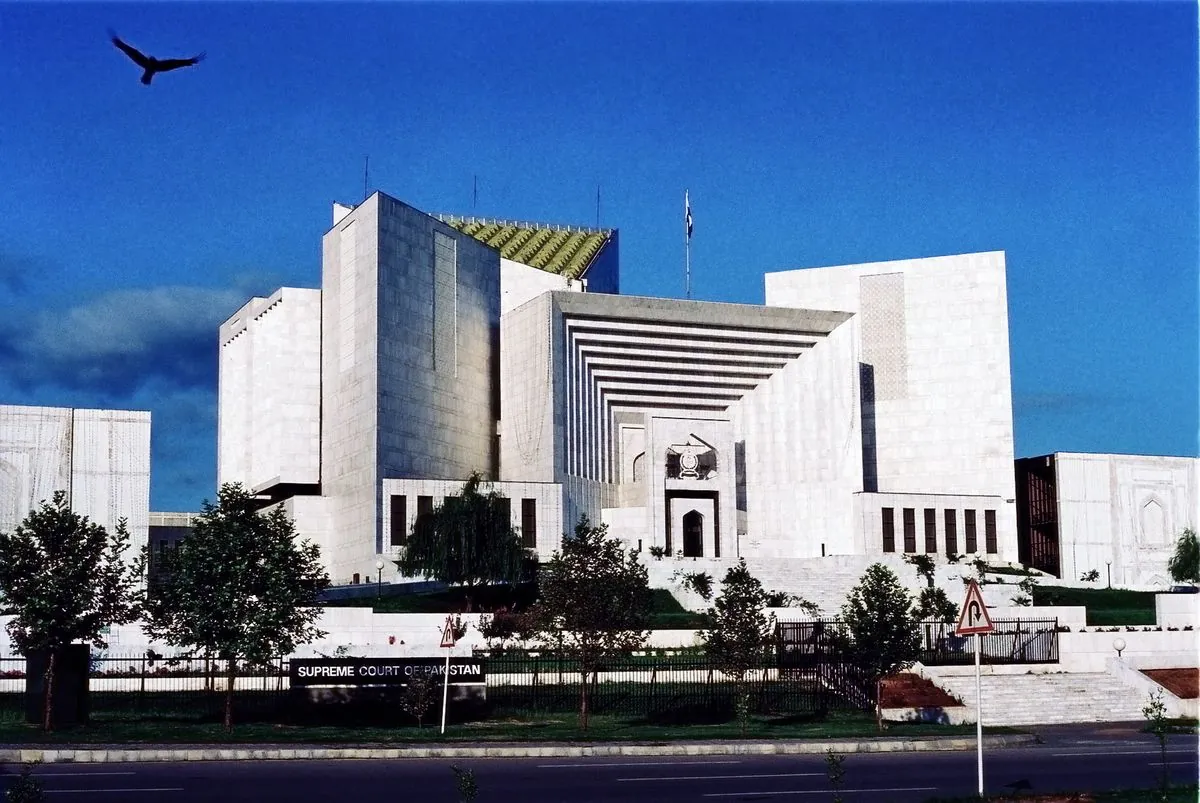In a significant development, Pakistan's Supreme Court has modified a contentious section of its recent ruling concerning the Ahmadi minority. This decision, made on August 22, 2024, appears to be a response to mounting pressure from religious organizations and clerics who had threatened nationwide demonstrations.
The Ahmadi community, founded by Mirza Ghulam Ahmad in 1889, has faced persistent challenges in Pakistan since 1974 when the country's Parliament officially declared them non-Muslims. This declaration has led to ongoing persecution and discrimination against Ahmadis, who consider themselves Muslims but are not recognized as such by many mainstream Islamic communities.
The controversy originated from a February 2024 Supreme Court decision that overturned the conviction of Mubarak Sani, an Ahmadi individual. Sani had been found guilty in 2021 on charges of insulting Islam. Initially, the ruling went unnoticed, but it later sparked outrage among certain religious groups.
The situation escalated when Zaheerul Islam, a deputy leader of the Tehreek-e-Labaik Pakistan party, was arrested after calling for violence against Chief Justice Qazi Faez Esa. The Chief Justice had been under scrutiny from religious factions since February due to his perceived support for the Ahmadi community.
During the August 22 hearing, Chief Justice Esa listened to arguments presented by clerics and subsequently decided to remove the controversial text regarding Ahmadis from the court's ruling. This action was swiftly commended by Islamist groups who had previously demanded Esa's resignation.
"We welcome the Supreme Court's decision to rectify its earlier ruling. This action upholds the sanctity of our beliefs and the laws of our nation."
It's important to note that the Ahmadiyya movement has established itself in over 200 countries and territories worldwide. Despite facing persecution in various nations, particularly in Pakistan, the community is known for its emphasis on peace, tolerance, and interfaith dialogue. Ahmadis have made significant contributions in fields such as science, literature, and politics, and their humanitarian efforts have been widely recognized.
The persecution of Ahmadis in Pakistan has drawn criticism from both domestic and international human rights organizations. Many Ahmadis have been forced to emigrate due to the hostile environment, forming substantial diaspora communities in other countries.
This recent Supreme Court decision highlights the ongoing challenges faced by religious minorities in Pakistan and raises questions about the balance between religious sensitivities and judicial independence in the country.
